Disclaimer: This essay includes spoilers from the film ‘Get Out’.
My freshman year of college my 5’1 blonde roommate Elizabeth busted into our suite and called me a “fucking bitch” over something I said on twitter. She was drunk and aggressive. I was sober and half-sleep. I told her to go away and she advanced into my personal space, yelling and knocking over my perfume bottles. I looked at her in disbelief. Just last week we had shared a heart to heart over Russian vodka on the floor of our closet, discussing her old heroin addiction and my traumatic early high school years. She gritted her teeth and told me she’d kick my ass, then left. In the next hour I got into a screaming match with some white guys from down the hall who came out of the room to protect her when I came looking for her; and I ended up sleeping in the basement. The next week I was served a restraining order and told I was facing expulsion from school- plus I was forced to move out immediately. To sweeten the shit stew, little Elizabeth told the school that I was a drug addict and I was subsequently forced to take drug tests and $100 drug counseling sessions for two semesters. Though Elizabeth had threatened me first, she had no issue convincing the school that the 5’7 black girl was a danger to her personal safety. It wasn’t the first or last time a white woman would use her privilege to slight me, but I thought about this particular incident recently when watching the wildly popular Jordan Peele creation “Get Out”.
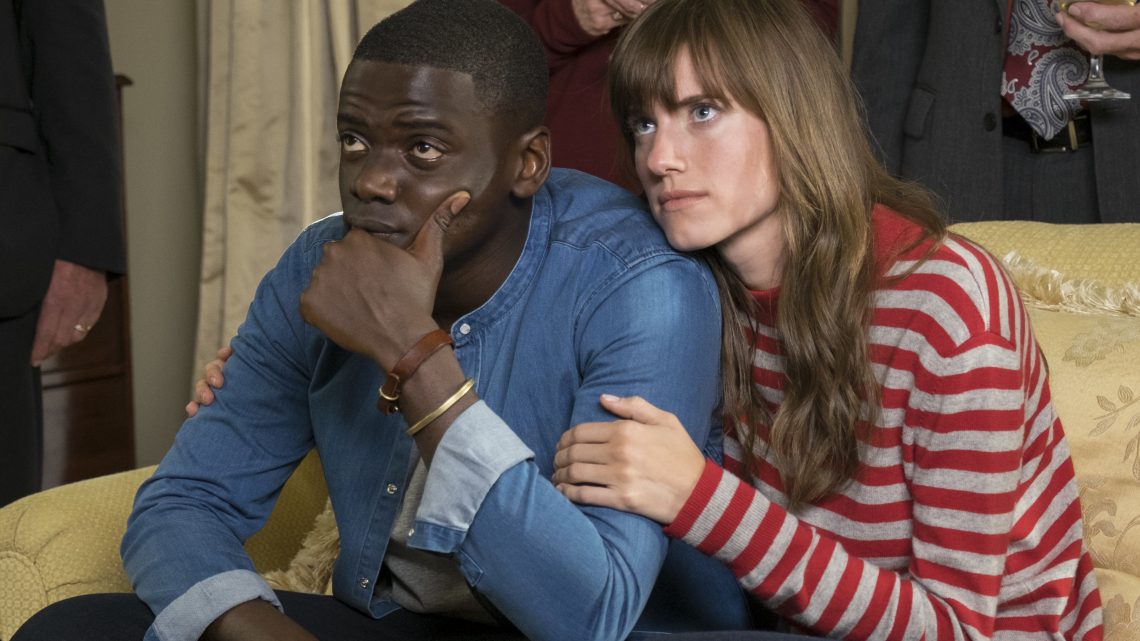
While the male members of the Armitage family were aggressive and at times openly hostile before the films big climax, Rose and her mother Missy were sickeningly sweet. As I watched the plot unfold on screen, I, like Cosmo writer Kendra James, wondered if Rose was in on her parents’ nefarious plot to hypnotize Chris. As soon as Rose said “nobody messes with my man” (forgive me if this isn’t verbatim, I saw the film on a very hazy weekend in New Orleans and I consider myself fortunate to remember the basics of the plot) in the car on the way to her parents, I knew the bitch wasn’t to be trusted. The way she said my man inexplicably annoyed me and I instantly disliked her. But then my guilt kicked in. Not all white women suck, I reasoned with myself. Maybe it was my silly prejudices. Maybe she’s not a villain. Maybe she’s just some white girl who might get caught up in some shit. With those considerations in mind, I plunged my hand into my bucket of buttered popcorn and waited to find out. After Missy pulled her little teacup trick on Chris to help him kick his nicotine addiction, I tried to not let my mind go into bitter black woman mode. Not all white women suck. I decided that Rose had been hypnotized by her mother into participating in the dark Armitage family secret. My theory felt more plausible after Rose and Chris had a teary heart to heart while white people bid for the privilege of owning him. But later, as Chris flipped through the damning photos from the closet, I knew what my gut instinct had told me to be true. Rose, like a lot of white women, sucked.
Rose and Missy showed concern, had manners, and kept their tempers in check while their male counterparts reeked of irrationality, violence, and oddity. But by the end of the film their masks of delicate white femininity were peeled back to reveal hateful monsters. As a historian this spoke to me on a spiritual level. America’s past is rife with kind faced white women who exploited, abused, or accused black people for their own benefit. Because white supremacy is rooted in patriarchy, its often too easy to overlook white women under the notion that they too are oppressed. But it is prudent to remember that though oppressed, the status of white women has been and continues to be higher than both black men and women. Even if considered the white man’s inferior, they are still the white man’s counterpart. Afterall, 20th century racism was heavily fueled by the white man’s destructive desire to keep their women safe from black rapists. This has led to an odd status for white women in American society.
Because they have traditionally been symbols of femininity, they lack not only hostile reputations of hatred and violence given to white and black men, but also the angry trope bestowed upon black women. This privilege has allowed white women and their special brand of racism to exist, virtually unchecked, in a variety of forms over the centuries.
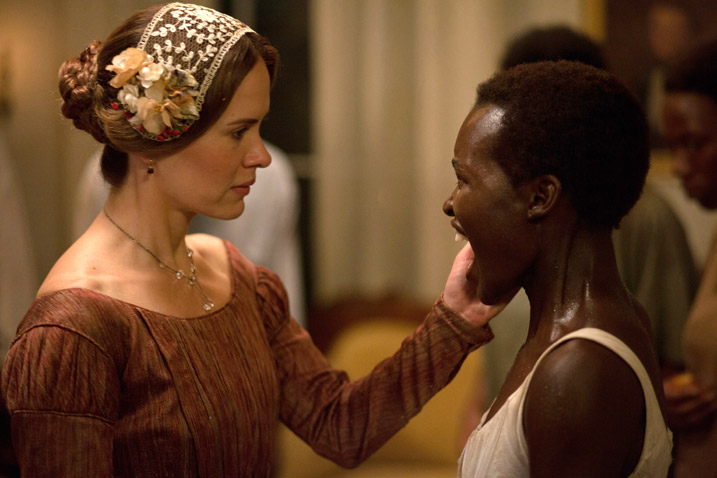 The Slave Holder’s Counterpart
The Slave Holder’s Counterpart
Take 19th century slaveholder wife Mary Epps. As detailed by Solomon Northup in 12 Years a Slave, Mary Epps became jealous of her husband Edwin’s frequent rapes of a slave girl named Patsey. Mary began beating Patsey, taking no womanly sympathy for her brutal sexual assaults, instead reducing her to a black jezebel interested in sleeping with her husband. Mary encouraged her husband to discipline Patsey after she had left the plantation without permission, leading him to crack his whip at her over 50 times. Slavery is checkered with untold numbers of Patsey’s, who were dual victims of both their male and female masters. “One white lady that lived near us at McBean slipped in a colored gals room and cut her baby’s head clean off cause it belonged to her husband.” recalled a former slave being interviewed in the WPA Slave Narrative Project.
White Feminists AKA Frenemies
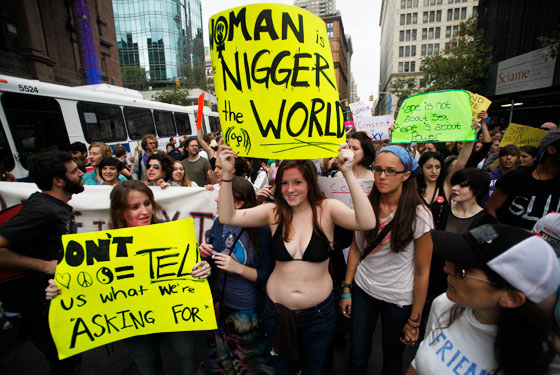
Historically, when white feminists have cried out about the injustices of sexism, they often ignored racism- or perpetuated it. As famed suffragist Elizabeth Cady Stanton said, “What will we and our daughters suffer if these degraded black men are allowed to have rights that would make them even worse than our saxon fathers?” Susan B. Anthony was in on it too. “I will cut off this right arm of mine before I will ever work or demand the ballot for the negro and not the woman.” Notice how this statement effectively erased black women from the conversation. When black men were granted the right to vote in 1870, white suffragists were pissed because they believed they were better than black men. Frances E Willard said “It is not fair that a plantation Negro who can neither read or write should be entrusted with the ballot,” before going on to say black men were dangerous threats to white womanhood. By tapping into white men’s fear of nigger rape, Willard hoped to leverage white womanhood for a few male privileges. White women were women, but more importantly (as they implied), they were white.
Ida B. Wells saw through the fake ass Frances and her hateful and inciteful speech against black men, realizing that she and other white suffragists wanted to gain support from white men who were “hanging, shooting, and burning negroes alive.” Frances and other white feminists weren’t out hanging, shooting, and burning…. But they were okay with aligning themselves with the men who were. Their reputations of purity allowed them to wreak racial havoc from a dignified pedestal. To Great Britain, Frances Willard was the “uncrowned queen of American democracy”, a moral and righteous woman who would never ignore a lynching epidemic. They were quite surprised when Ida B Wells showed up for a British women’s rights convention and read some of Willard’s inflammatory speech aloud.
On the same day Donald Trump was elected with 53% of the white woman’s vote, feminists gathered at Susan B Anthony’s grave with “I Voted” stickers. A few think-pieces popped up from self identified feminists who explained why they voted for a man who emboldened white racists. It all echoed the reality of white feminism: “We are women, but we’re white first.” When forced to choose between retaining racial privilege or fighting sexist oppression, the majority of white women will choose their privilege every time. But even still, they’ll always call on black women for numbers if they need them.
Faux-Politically Empowered Girlfriends and Wives
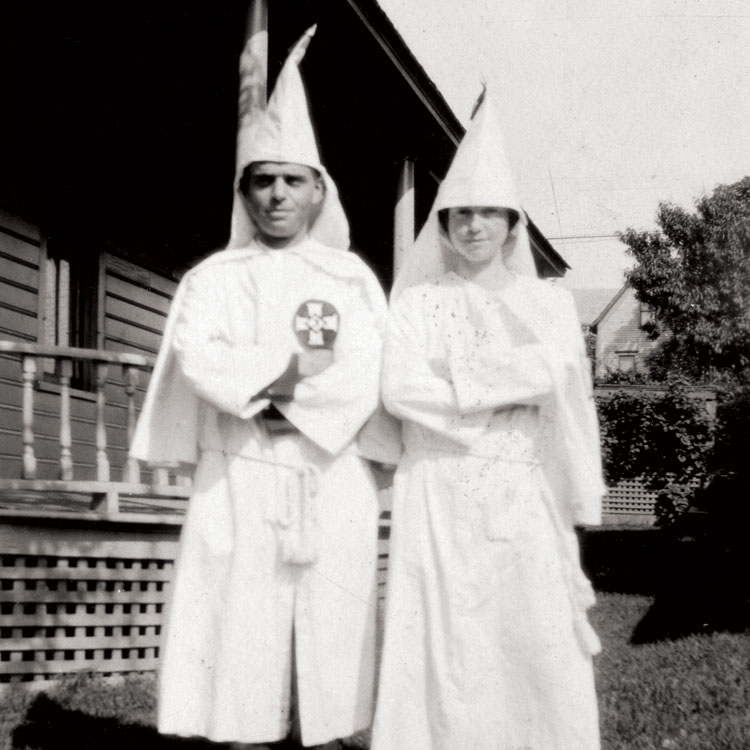
These are the women who gained the right to vote in the 1920s and went buckwild. “White supremacy will be strengthened, not weakened, by women’s suffrage.” said Carrie Chapman Catt. As the recent election demonstrated, she was right. While the KKK became more popular in the years leading up to The Great Depression, white protestant women joined the WKKK in droves. Many of them joined when or after their husbands did. Like their male counterparts, they believed their rights were being trampled on by black people and immigrants. They were also terrified of the black rapist, a villain perpetuated by the popular 1916 film, Birth of a Nation. It shouldn’t be shocking that many of these women were former suffragettes. Even though in the present day the KKK’s once mighty power has been whittled down to hundreds of smaller hate groups, the women who aligned themselves with these male dominated arenas are still around. A contemporary version of this white woman is likely to be decked out in confederate flag belts, uses the complete term “the white race” frequently, and has a drug or alcohol problem. She votes however her father/boyfriend/brothers tell her (if she votes in those “rigged zionist abortions” at all, that is), believes white genocide is imminent, and thinks feminism is a cancer.
Polite But Still Racist Southern Belles
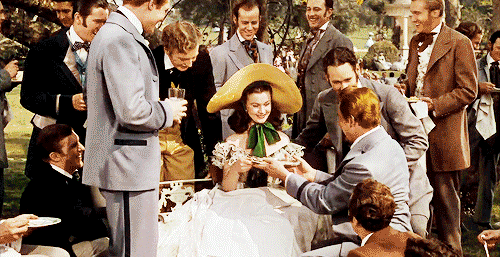
Ah, a true classic. As a North Carolina native, Ive come into contact with a dizzying amount of women like this here in the 21st Century. Well-off white women in costly sundresses with withered french manicured hands encrusted in diamonds; who often clutch at their pearls and say “Bless your heart.” They’re always polite, but usually haughty. Some of the ones I’ve come into contact with have praised me for being articulate or pretty, as if smart or pretty black girls are a rarity. I pity the black people who had to deal with these phony bitches during the Jim Crow era, when their negative opinion could get your house set on fire or your husband strung up from a tree. Hiding behind dainty dresses, southern manners, and the assertion that she treated her negro servants like members of the family, the racist southern belle was a fixture on the 20th century American landscape. With a sugary sweet accent, Christian rhetoric, leisurely afternoons spent gossiping and being nosy, and the power of being married to a man that mattered in the eyes of the law, the average southern white woman was an entitled monster. She was fine with negroes as long as they stayed in their place- aka staying subservient to white people. She was also fine with violence against negroes. In Coming of Age in Mississippi, Anne Moody recalled her employer, Mrs Burke, saying that Emmett Till never would have been murdered had he not ‘forgot his place’. Mrs Burke, and thousands of other women like her, blamed the violent behavior of their husbands, brothers, sons, cousins, and neighbors on black people getting out of place. What a convenient way to excuse depravity from the safehaven of white womanhood.
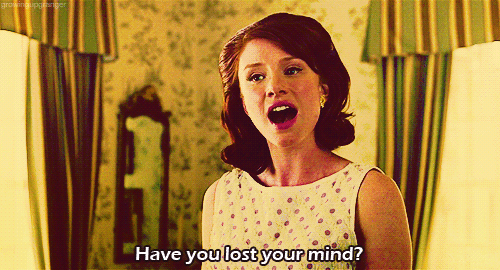
The “Im a Racist Because Im a Good Mother” Women
Somebody’s child is always being used to justify bullshit. When white parents found out black Ruby Bridges was going to be attending their school, they were pissed. One woman, obviously concerned about the 5 year old Bridges threatening the safety of her own child, threatened to poison Ruby on her daily walks to school. This attitude was repeated by every racist white woman during the integration years. Listen to the woman below use her kids to excuse her racism.
White women being foul racists for the alleged sake of their children was and is common, and made clear by the dozens of unnamed white women you see yelling angrily in historic integration photos. The sadder part? Many have never been identified and never will be.
The Lover of Black Men and Hater of Black Women
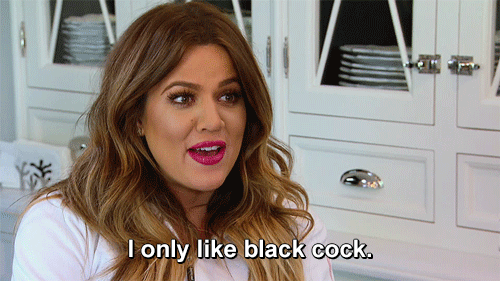
This is a relatively new category of white woman, as for the majority of American history miscegenation has been illegal and widely frowned upon. But in the 21st century, this woman thrives. She loves black men and black culture. She publicly applauds black rights. She doesn’t say nigga. She’s cool. She’s down. But at some point, she reveals her true colors and competitive nature. “I love black cock,” she says, signifying that her love for black men isn’t genuine or loyal but instead founded in fetishism. “Black women hate me because black men love me.” she says with total seriousness. Or, “Black girls just mad because they have to wear weave and white girls wear their real hair, THATS WHY WE STEALING YOUR MEN.” Statements like these blatantly reveal her superiority complex with the black woman; whom she hates for being the black man’s counterpart. Clearly, black men are safe from her hatred because they have something she wants- dick and/or validation. Black women though? The mothers, the sisters, the aunts, and the daughters? We’re her enemy.
The Pretty Conduit
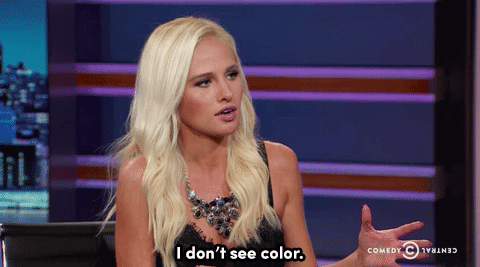
Let us go back to Rose Armitage real quick. She seemed innocent and normal until you found out she was raised to kidnap and hypnotize black people for the wanton desires of white family members and friends. Even when Chris KNEW that she was a deranged mayonnaise demon escaped from the deepest pits of hell, he couldn’t bring himself to choke her to death. He looked down at her pretty face and decided that he couldn’t do it. This was one of the scariest parts of the movie to me because it represents America’s response to a type of woman who has grown in popularity thanks to the internet and social media. You already know I’m talking about women like Ann Coulter and Tomi Lahren. She says everything the typical white male racist says- but a sweet voice, a conventionally attractive face, and the privilege of femininity that whiteness grants her keeps the virulent racist bimbo from being labeled as one. Her appearance, gender, and feminine qualities appeal to people that white men can’t. Because of her appearance and status as a white woman, she is protected by white and black men alike. To them she is never angry or bitter, just sassy and passionate. To them she is not racist, just speaking “the truth” or her opinion. In fact, some black men shrug off her racism with a sickening resolve: “I’d still fuck.”
At the end of the film when Rose thought she saw a cop car, she knew she could snap back into victim mode. Had it been a cop instead of Chris’s friend Rod, they’d have seen a bloodied black man looking down on a broken white woman and shot him in a heartbeat. Rose knew she could weave a tale of rape and terror and go on about her life. Not every white woman sucks. But every white woman on this list, and every white woman in real life, has the fake victim card at her disposal. When my former college roommate Elizabeth experienced my reaction to her threat to do me bodily harm, she flipped a switch. She was no longer the vodka fueled instigator making threats and acting tough. She was suddenly crying in the hallway, inconsolable and weak. This is white womanhood. This is their ultimate privilege. At any moment they can go from agitator or abuser to a delicate and innocent white woman in need of protection from the big scary black. Even worse, not every black man or woman will be fortunate enough to have a friend like Rod to come save them when they’ve been accused of violence by a white woman, or when they were simply black in the wrong place at the wrong time. Many have been, and will continue to be caught in the web of faux innocence, lies, and evil spun by white women.
Perhaps this is why Get Out is one of the scariest movies I’ve ever seen.
Love this essay? Donate here.

Erin
March 8, 2017 10:10 pm
I am a white woman and I agree with every single thing you said here except that Ann Coulter has a “conventionally attractive face”. She has the face of a mayonnaise-horse-witch-demon and I stand by that. But white women need to do better and try harder every day. Please keep writing, the world needs your voice & your badass 2 min histories! XX
Joel
April 28, 2017 4:44 pm
A powerful article that shares the truth! As a man of color, it’s ridiculous to see white women sense of entitlement. They behave as if their doing you a favor by being attracted to you. It’s also important to understand that white woman uses underhanded strategies when dealing with men of color. for example, they come under the guise of the word help. Usually, when white women say that they want something from you sexually. They are very pushy when they like you, uncomfortable stares and forcing their way into your world without an introduction is common ( I have personally white women violate my personal space and they do it with comfort). If your reject all their advance, you likely to have a problem on your hand. It sad to think that white women are not sending men of color to jail for rejecting them. There are not enough studies are the sexual advance made by white women to men of colors and their rejection behavior. Sexual exploitation of men of color by white women has been reduced to a word like fetish and not called for the heinous act it is. White women lust for men of color is more damaging to the community of color, than any Donald Trump supporters bigotry. The only way this will stop, is if we tackle the colonial mentality and self-hate. white women use the inferiority complex of people of color to their advantage. White women know that self-hating black women teach their sons to find light skinned women, and the lighter the better. A nation with the disgusting past of America will never reach racial harmony. common sense and the laws of karma should tell most that. We have created a sick society were racist sexually exploit, the so-called inferior races. This is a situation that many men fo color suffer around the world because a good majority of sex tourist is white women.
P.S. A little bit of research of history will show the undeniable fact, expressed in the article. WHITE WOMEN ARE SEXUAL PREDATORS AND NEED TO BE STOPPED.
Sam
May 6, 2017 8:12 pm
When you mentioned Ann Coulter and attractive face I hollered
Osmar
June 29, 2017 7:59 pm
Joel shoud be a white Troll ,I don’t need to be jew to say Nazis are evil thing ,so this make no sense
Amy
October 18, 2017 2:17 am
I found this after watching a clip of a car full of young white girls repeating ‘nigg*r’ with sheer enjoyment. There was a steaming shit pile of responses containing phrases that echo ‘not all white women’. My initial internal response was shame. I forced myself to go back and watch the clip with the volume on, and in its entirety. (I’m the girl who can’t watch talk shows without covering my eyes, cupping my ears, and humming to drown out the inevitable humiliation of someone…. ) So, when I say I forced myself to watch, I mean it.
I am fucking disgusted that white women behave in this way. I have watched that shit unfold through spaces between fingers covering my eyes. I have found myself in situations where employers were handing me not so subtle reminders that I could use my privilege…
I’m not sure why I feel the way I do, aside from genuinely wanting to be a good human, and being raised to believe that I was neither better nor worse than anyone else.
I read this article, and want so badly to not be lumped in with those women, but understand how I am. I will never accept that- because acceptance feels a lot like permission to me. White women do not have my permission to misrepresent me.
I was raised in a very poor area of Maine. I had very limited exposure to people of color- based on geography alone. I truly believed that racism was part of our history, I was not exposed to anything, hadn’t really traveled… I was so incredibly ignorant. Fast forward to me in my late 20’s, and plant me in Florida. My husband was offered a job in Tampa… I decided, after feeling like a shut-in, to go back to work. I was a psych person… had worked inpatient, and in some pretty dangerous situations (relatively speaking). I’m a big girl, was taught to fight by my big brother, and had zero fear. I was hired instantly, and put on the floor of a locked ‘acute’ Psych unit. It was me…. one other woman and four men. I was the only white person. I was immediately isolated and tested (not my first rodeo, and knew I had to prove myself, but it was more than what I had experienced before. It wasn’t about my ability to handle danger, but how I could while also being white). I am a proud, self sufficient, competent person. I’m not afraid to get dirty… I’m no better nor worse. A mantra my father literally knocked into me.
As the weeks went by, I felt as though my coworkers were ‘starting’ to trust me. I was, at least, included in conversation. Again- I had attributed this initiation almost entirely to the field. You have to earn trust-
It had been a particularly difficult shift. People requiring multiple physical and chemical restraints. I was exhausted…we all were. I was loading up a giant bag of dirty linen, and struggled to lift it out of the cart. One of my male coworkers came over and yanked it out and prepared to easily throw it over his shoulder. He said, “I’ve got it, you don’t have to do that”.
I was kind of insulted. I reminded him that we had the same title on our badge, and it definitely was part of the ‘job expectation’. I didn’t want a man to think I couldn’t carry my weight, or that I was somehow less than. I grabbed the bag, and drug that fucking thing down the hall. He yelled at my back, “I knew you COULD, but didn’t think you should have to”.
He didn’t think I should have to do that. That dirty part. The part that privileged people don’t have to do.
I cried in the closet. I knew what he meant.
I had this moment of “holy fuck” Instances where I recalled witnessing white women on other units, in different roles, use their whiteness. It wasnt because they were women… I couldn’t recall a single instance where this help was being assumed for women of color.
This experience, and the countless others that followed, gave me the exact same distrust for the white girlfriend in “Get Out”. I distrusted her from the beginning (because I didn’t have to fight back transferred issues of race). .
I know you don’t require or even want validation for your gut level distrust. You’ve lived it, and I’ve only witnessed it peripherally. I’d probably offer up a kind “go fuck yourself,” but suspect you’re a better person than I am.
I will not utter the phrase “not all white women”. I can only hope that you continue to fight against it, if only to stay above it. You have every reason to give up on us, and you haven’t…
Kell
October 23, 2017 7:54 pm
Lol. Am a black woman and find your only beef Ann Coulter ain’t pretty,
You my doll, are adorable.
Jacquie
March 8, 2017 11:42 pm
This was incredible. And so thought provoking for me as a White Woman. I’m Canadian, so I know my experience is a little bit different. But I’m also extremely blessed that I have parents who married in Britain in the 1960’s and were of 2 different faiths. (One was Catholic & the other Protestant – Britain’s version of a “Mixed Marriage” at the time.) My dad was willing to marry my mom in her Catholic Church, but not convert his faith, so my mother was excommunicated. (Luckily many years later in Canada she was able to return to the church she loved – it was important to her.)
This religious thing was such a big deal when my parent’s got together that the rule in our house was ALWAYS tolderance & respect. Every person God created was equal. We kids weren’t Baptized – on purpose – and were encouraged to choose our own path. “It doesn’t matter what faith, just HAVE FAITH” was what my father used to say. It was also very easy to know everyone was equal when I grew up with extended family members who were Japanese (adopted), Intellectually Challenged and Gay (which we saw at age 4).
A few other things really helped to shape my outlook. I started in a Small, Northern Community where my Japanese Cousin was one of the ONLY non-White or Indigenous People in town. When I was 6, we moved to a suburb of Toronto & I met friends with names like Sharmila and Inderjit and Homa who had all lived in other parts of the world! It was incredible & suddenly my world was literally In colour!
I also gained weight in my pre-teens and was a Fat Teenager. I will NEVER relate being fat to being Black, but I do have a little empathy for being bullied, shamed, made to feel less-than or “other” because of what’s on the outside. And the weight came because of past trauma…which took me until my 40s to unravel, so I couldn’t just “lose it”. I have always tried to live my life seeing past the surface of people.
But it wasn’t until I started going on cruises that I met ladies like the ones you describe. Because I am white, I suppose they assume we all think alike, so on night 3, after relatively normal, benign dinner chit chat? The venom started to spew about our Amazing Waiter & the rest of the “Coloured Help”. I was sooo stunned I could barely speak at first. I won’t pretend racism doesn’t exist up here, but we just aren’t quite so…blatant. When I did find my words? I used them. Many 4 letter ones that distinguished me proudly from the “Ladies” at the dining table. I didn’t see then for the rest of the cruise. Guess they preferred the Buffet after that.
Anyway, I’m rambling…probably just another White Girl tryng to convince you “not every white woman sucks”. LOL
I *try* not to suck. Every day I try to be conscious. I wasn’t lucky eniugh to have kids, but I still hope to Adopt or at least Foster. That means there’s a good chance I’ll parent a child of colour. So I try hard to check myself & my privilege every day. I try to really understand what the struggle still is & where it came from. How things like incarceration rates of Black Males today have a direct link back to the past. And how that “past” wasn’t so very long ago.
Rose
March 10, 2017 2:20 pm
Lol there were interracial marriages in Britain in the 1960s… my parents for one. Interdenominational marriages within Christianity were hardly the be all and end all in 60s Britain, honestly.
Remy
March 10, 2017 9:10 pm
*makes it about themselves*
Jacquie
March 13, 2017 3:58 am
@Rose – in making a joke about my truth, it was in no way intended to deny the existence of yours. But historically, the biggest thing on peoples minds at that time in Britain was religion. The Irish were at war over it.
@Remy – that’s not unfair to say. But as a 47yr old White Woman who reads Elexus’ blog & her twitter feed voraciously, I often LEARN from her. And my story & truth were directed back to HER as a means of understanding who I am & why I would be interested in being here despite how much someone else may not want me to be.
I believe in & stand with Black Lives Matters. No, not just to send a half-hearted tweet or two. And not just by saying “I have a Black Friend”. But I felt no need to justify any of that. I’m simply awed by the writers knowledge and passion and after MANY months, on this particular blog about White Women that we both stand shoulder to shoulder in despising? I decided to share my truth with her.
But since it’s a public forum, you got to read & draw conclusions. So I understand why you drew the conclusions you did. And I also know the more I try to convince you I’m not ‘that person’? The more you may try to fit me in that box. So I wish you blessings & peace for a happy life. There’s work to be done & my issues aren’t with you & what you may think of me.
Jerry
March 9, 2017 8:59 am
Learning everyday….!!
William Moody
March 9, 2017 9:47 am
Powerful. Chris Rock said whites had become less ‘crazy’ but Get Out kind of challenging that. It’s not about individual mental health, it’s horror genre
Alisha G
March 9, 2017 2:24 pm
I honestly feel so enlightened. I can even say that I’ve experienced some of this and I’m just shook. Thanks for this
Leelinde
March 9, 2017 3:11 pm
Get Out spoilers… I haven’t seen the movie. Should really consider putting a spoiler warning before you start discussing major plot points. Great article though.
syd
March 11, 2017 4:46 am
there was a spoiler warning at the top of the article.
Megan
March 9, 2017 3:28 pm
Thank you for this. White women (including me) need to read things like this so we can see our part in it and face reality as Keila Anne said in her comment!
Ayana
March 9, 2017 4:24 pm
Thank you for this!!!! Someone needed to say it and say it with precision and historic evidence! Thank you!
Shan
March 9, 2017 4:29 pm
AMAZING ANALYZATION
Jessica
March 9, 2017 11:53 pm
I’m white…please don’t lump me in with everyone else. I’m not like that….I’ve known women from ALL raves that are. I see women, not white ones or black one. You are perpetuating your own stereotype.
Jess
March 10, 2017 1:13 am
Look– as white people, we’ve been raised in an inherently racist society that serves to our benefit. Rather than feeling victimized & attacked by being “lumped in” with other white people, why not consider this a chance to evaluate our own experiences and ask ourselves, “How can I use this information to be a better ally?” This piece is a cultural critique, not a personal attack.
Jacquie
March 10, 2017 4:29 am
Jessica? Did you READ the whole piece? ‘Cause I think most of us White Women who follow this Amazing Voice are aware of exactly who she was speaking about … and sadly, it’s more of our Melanin Deficient Sisters than we probably care to admit. Do we *really* have to #NotAllWhiteWomen this?
OldWhiteGirl
March 10, 2017 8:19 pm
Honey. You’ve missed the point. You’re reacting just like she says. Stop your foot stamping & acting like the white victim.
Z
March 12, 2017 1:49 am
I don’t think your thought process is working well. Just use your critical thinking
Russell
April 23, 2017 10:57 pm
Ah, the ol “I don’t see color” thing huh? Followed by the “you’re the reason the stereotype exists” play.
But nah, it’s not you at all 🙄
irene fo'sure
March 10, 2017 2:06 pm
it’s a hard read, but a truthful one if the reader really let’s go of what society has said to beleive and truthfully believes what is taking place in society. more and more stories of white privilege are emerging than ever before and the black fear is still being used to bolster it. although i have white friends, i honestly keep what was told to me in my head by my pre-civil rights, jim crow era granddaddy, “a white will see you as a nigger first and a friend second.” yeah, that sounds bad, but it’s true. i see the fear in the eyes of the whites i encounter. i see them pull their kids to the side when they walk past me, i see how they immediately look to the ground as we walk past one another, i get the “oh, i’m sorry, i didn’t know you were talking to me” when i literally am standing right beside them to ask a question, i get followed around in the stores, i see the surprised looks on cashiers faces when i pull out a credit card instead of a food stamp card, i get surprised reactions when i say i live in the ‘burps and not the inner city, that i own my car and not renting it, that i have a grad degree in a science field and not an art field, that i’m a nurse administrator and not a fake nurse aka cna, that my kids are legitimate because black women don’t marry, because i speak in proper english because blacks speak ebonics and the countless other sterotypes the white race have invented about blacks, but most importantly, if one black person commits a crime against whites, than ALL blacks are responsible for that crime and will do the same crime at some point; yet a white person can blow up a building, but ONLY that lone white person is responsible for that crime. the crime is NOT attached to the white race and that is to be accepted whether is it right or wrong. this is america. it won’t change until the misplaced fear is finally stopped by the race who professes to have let it go decades before. all white women don’t suck, but it’s really hard to tell the difference when some know all they have to do is pull their white privilege card whenever it’s wanted/needed. yeah, i know, another angry black woman spouting off at what is not known or even real. yeah, i get it. i’m to stay in my place because anything i speak or write is from an angry place. lol this is america. if you’re vocal, you’re labled as a trouble maker. if you stand up for yourself, you’re too aggressive. it just doesn’t make sense and i’d rather live in a country that supports diversity than to continue to live in one that oppresses it. we blacks get relief from time to time, but we never get a full relief. the hate and oppression will always come back to the black race. it’s so funny when other races get on board until they are targeted by whites, then it’s “brother, come help us, lend us your support.” awww, you want our help? really? nope.
Xiomarr
March 11, 2017 1:59 am
Beautifully written. I felt that dorm story at the beginning on a spiritual level. Sometimes it feels like there’s literally nothing you can do in those situations, because all of your options are lose-lose situations.
Dianne
March 13, 2017 3:23 am
Wow. So profound. Loved every word.
Jeannie
March 13, 2017 2:12 pm
Well written and researched. If it helps at all on any level, all us “try harder” types really hate Ann Coulter, too. (LOL)
Taryn Rene
March 13, 2017 2:17 pm
Just here to give Thanks for this breakdown. It’s thorough, on point, and Forever relevant. I appreciate you and I’ll be sharing this far and wide.
✊💛
Lorraine
March 15, 2017 4:41 pm
Thank you, Irene fo’sure and Elexus for sharing these truths. I’m not sure why we would think any gender would be an exception of doing evil things even under guises of a legitimate cause . Does it really make sense that we are to trust a woman more because she’s not a man ? The fact that, All White women don’t suck, is the Truth. I can say that for my grandmother and my mother and other members of my family. That being said, we live in a society that has created the white privileged card, and I believe that a privilege class or group of people will never up their rights. But based upon women developing a moral conscious, unlike many of their power hungering counterparts, they will see humanity is a birth right and not something based on skin color. If white women truly believe and live this statement as truth, then they will also see that the privilege card is something that not only compromises their soul, but it is a shameful and cowardice act.
Jak
March 16, 2017 7:40 am
Racism is for willingly stupid people with tiny minds. Poor smart people (of all colors, since racism isn’t black/US/white-centric) just have to suffer for it.
Sorry the caucasian females you know/knew ar/were all useless slobs.
Nichole
March 27, 2017 8:27 pm
This was a very well written and insightful essay. You are dead on about white privilege, specifically, white women privilege. Up until I made it a point to evaluate my whiteness, I had no clue about my unintentional and socially conditioned privilege. Now that I am aware I see it EVERYWHERE! The fact that we as a society have not moved to correct this boggles my mind. Thank you for sharing your thoughts on this very real problem. Hopefully by sharing we can wake America up!
Pamela Hazel
March 27, 2017 11:38 pm
I cling to the belief that Ann Coulter and Kellyanne Conway are some sort of breed apart.
Kys
April 2, 2017 7:40 am
Wow–I’ve never seen so many delusional self-hating sissies comment on the same post before.
Truly stunning lack of awareness, even for a bunch of paleface airhead sleazeballs.
Mary
July 28, 2017 6:00 pm
I hope we leave room in our hearts and minds for each other. My white world fell down when I saw black women I loved being racist on Facebook. In my mind we were friends and equals. She was part of my wedding. I was raised in a black naighboorhood, our naighboors were always welcome in our home. In fact I always thought everyone felt that blatant rasicism was a thing of the past. It broke my heart to see how she really felt. The things I am learning now, in my late 30s about rasicism break my heart. I continue to pray for us all. Thank you for being so honest and straight forward. I hope you will continue to open the eyes of those who have never felt your pain as a society of Americans.
Libya Pugh
October 6, 2017 3:52 pm
Thank you for the article. I’m a black woman who has met awesome informative analytical and passionate white women. I have them as friends. They are warriors. I also have found myself cutting off white women friends who refuse to wake up to what I call “Scarlet Ohara Syndrome”. The idea that black women are inferior to them and use this to overcome their on insecurities. I think that the more white women who are educated and aware researching this and speaking on this, will wake up my white sister who have been blinded by white male pedestal privilege and deep seeded sexual desires to explore the unknown as a salve of ageism.
None
November 25, 2017 2:54 am
You are ugly as fuck. Please remove your photographs.
Thank you.
Terrance
February 6, 2018 8:55 am
I want to start by complimenting you on your article, your god given gift for writing bleeds through in every sentence and every paragraph !!! I urge you to ignore any hateful comments you have received as a response to this article and keep doing what you do. The very nature of exposing the truth, guarantees that the one doing the exposing will ruffle some feathers in the process. I am a straight white man in his 30’s and when I read this I didn’t see a bigot writing another hit piece on white people or a mad black woman venting, I saw a woman with a very applicable point of view, who lives in a very pertinent reality, pointing out that the worse type of aggression, is passive-aggression.
So to address the content of your article, I felt like you hit the nail so directly on the head that if nobody ever addressed the topic again it would be ok, so long as everyone read your accounting of it. I recently spent a few months working for a company part time, it was a job where new faces came around on a regular basis and where developing a network of people you could trust and who had your back was vital to survival. As I approached my third month with the company, it dawned on me that my absolute best friend at work, a Woman I partnered up with every minute of every day as well as my three other trusted friends were all African American or Latino. I quietly pondered the meaning of this for quite some time and I came to the conclusion that it spoke more to the overall wealth of character in minorities and the total lack of character in today’s white women and increasingly in white men, than it did anything else.
I remember a few instances where I feared some of the devious and conniving white women we worked with, might retaliate against my bestie La’Nae out of jealousy over our super close friendship or as a means to try and get to me and I remember feeling so powerless to stop them. I frequently communicated my concerns to her, she was ten years my senior (43 years old) and she would always tell me not to worry, that she knew what what to expect in regards to these girls and that she could defend herself but I still worried none the less. I worried because if anyone is going to know the sort of attrition that the white women of today and of yesteryear are capable of, it is going to be a white man and what I know is cause for concern.